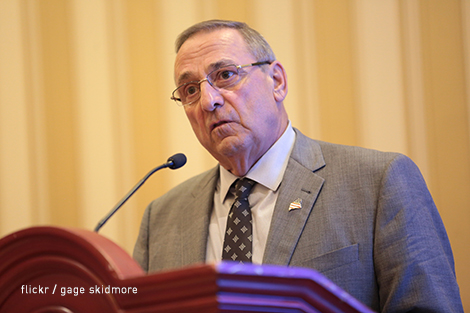The ACLU of Maine is urging the Maine legislature to reject several parts of the governor's proposed budget that raise significant constitutional concerns. We're also arguing that the LePage administration is misusing the budget process in an effort to ram through significant changes to Maine’s social safety net.
Specifically, we urge the Legislature to reject LD 390 part ZZZ, which would eliminate the General Assistance program entirely; part EEEE, which would ban families from receiving food stamps or Temporary Assistance for Needy Families (TANF) if a parent has been convicted of a drug felony – which until last year included possession of even miniscule amounts of most opiates – in the last 20.5 years; part FFFF-4, which would reduce the lifetime cap on receiving TANF to 36 months from 60 months; part HHHH, which would deny General Assistance specifically to asylum seekers; and part KKKK, which would repeal provisions in the law that require DHHS to provide certain benefits to asylum seekers.
These proposals raise significant constitutional concerns because they single out certain populations for unequal treatment, without serving any legitimate purpose to the state. Limiting or eliminating the public safety net for some children, asylum seekers and people who have battled drug addiction in the past will do great harm to many people, but it won’t save the state money or help people get their lives on track. We believe that good governance requires policy proposals based on actual data, not personal biases.
Further, we object to the LePage administration’s attempt to use the budget process to make major policy changes. The administration has made a habit of trying to circumvent the normal legislative process in order to pass policy proposals that have been rejected, sometimes repeatedly, by previous legislatures. The budget process is too complicated to allow for full public participation and deliberation on what amount to incredibly significant policy changes.
If parts ZZZ, EEEE, FFFF, HHHH, and KKKK had been proposed as individual bills, each would have a complete hearing with time for public testimony and thorough consideration by committee. Instead, these major proposals are buried in a several-hundred pages long bill, and will receive only an abbreviated amount of consideration.
Date
Wednesday, February 22, 2017 - 10:15amFeatured image
